The Down Syndrome Association of Castellón explains in this article how they address the aging of people with Down syndrome through NeuronUP.
The work of the Down Syndrome Association of Castellón
This year marks 25 years since, in 1995, a group of parents decided to unite their desire to respond to the needs of people with Down syndrome and/or intellectual disability that were not being met.
Their objectives
From that moment and throughout its history, the organization has pursued the following objectives:
- Enhance cognitive, social and emotional development, allowing people with Down syndrome to achieve their full personal fulfillment.
- Raise awareness among the rest of society about their reality, to achieve their full inclusion.
- Defend educational inclusion. Because people with Down syndrome and intellectual disability benefit from it. Likewise, all classmates.
- Promote their inclusion in the workforce, to achieve a positive and useful self-image and understanding and respect for others.
- Promote medical care, to assert their rights as individuals.
Services and Programs
The Association has services and programs that contribute to improving the quality of life of the people we serve. Among the services and programs are:
- Support for families
- Psychopedagogical service
- Workshop on adaptive skills and effective communication
- Siblings’ school
- Psychological care
- Summer school
- Volunteer, leisure and free-time programs
- Aging project
- Health and cognitive stimulation program.
The aging of people with Down syndrome
In recent decades we have observed that, due to improvements in various fields, the life expectancy of people with Down syndrome has increased. This longevity is accompanied by an improvement in their quality of life.
We know that aging involves a series of changes. These changes can be:
- Biological, which involve changes at the level of the frontal lobe. As a result, the brain gradually atrophies and neurons begin to be lost.
- Psychological, such as benign forgetfulness, obsessive behaviors, irritability, mental rigidity, etc.
- Social, in which friendships decrease, family supports are lost, the level of autonomy is reduced, the need for support in carrying out activities increases, etc. This stage appears at later ages in the general population. However, in people with Down syndrome this process occurs earlier and at a younger age. Of course, due to the specific genetic connection shared between Down syndrome and Alzheimer’s disease, there is a high prevalence of the latter developing.
Cognitive decline and the progression of the disease will depend on the personal characteristics of each individual. Therefore, it is vital to establish and maintain comprehensive care programs. These are based on two fundamental aspects: the aging with dignity and the preparation for development. Programs should be established for both people with Down syndrome and their family members and caregivers.
Aging project for people with Down syndrome
The aging project has been developed since 2016 when the need to respond to people with Down syndrome in adulthood was identified. Since then, two people have been responsible for the implementation of the project: a social worker and a psychologist.
Through the program, we provide coverage to those people who are within the age range in which the first signs and symptoms of aging may appear. Also, to those people who, despite not being within that range, we want to prevent and delay the appearance of these signs and symptoms.
Project objectives
From this it follows that the objectives underpinning the aging program for people with Down syndrome are:
- Promote active aging by addressing areas related to: health status and medical needs, physical activity, emotional and sexual needs, leisure and free time and stimulation of cognitive abilities.
- Increase the independence and autonomy of people with Down syndrome to promote quality aging.
- Detect any sign or symptom that could be considered a cause of possible cognitive decline through evaluation with screening tests for subsequent referral to the appropriate service.
- Carry out follow-up of all beneficiaries of the program.
- Prepare families and caregivers of adults with Down syndrome and/or intellectual disability for this stage.
- Offer guidance, care and specific support both to people with Down syndrome and to their families and caregivers.
Stakeholders involved
Close and joint collaboration is necessary among those involved in addressing the individual needs of people with Down syndrome. For this reason, we consider family and support networks to be noteworthy. Likewise, the professionals who work with them; and collaborative synergies with other entities, universities and health services.
Program recognitions
Last November, the Down Syndrome Association of Castellón received the First Prize in the category “Professionals in the sector: Best practice in the care of people” awarded by DomusVi. This recognition boosts the work of the professionals. In this way, it helps ensure that people with Down syndrome have a program that guarantees quality aging in all dimensions.
NeuronUP: support tool
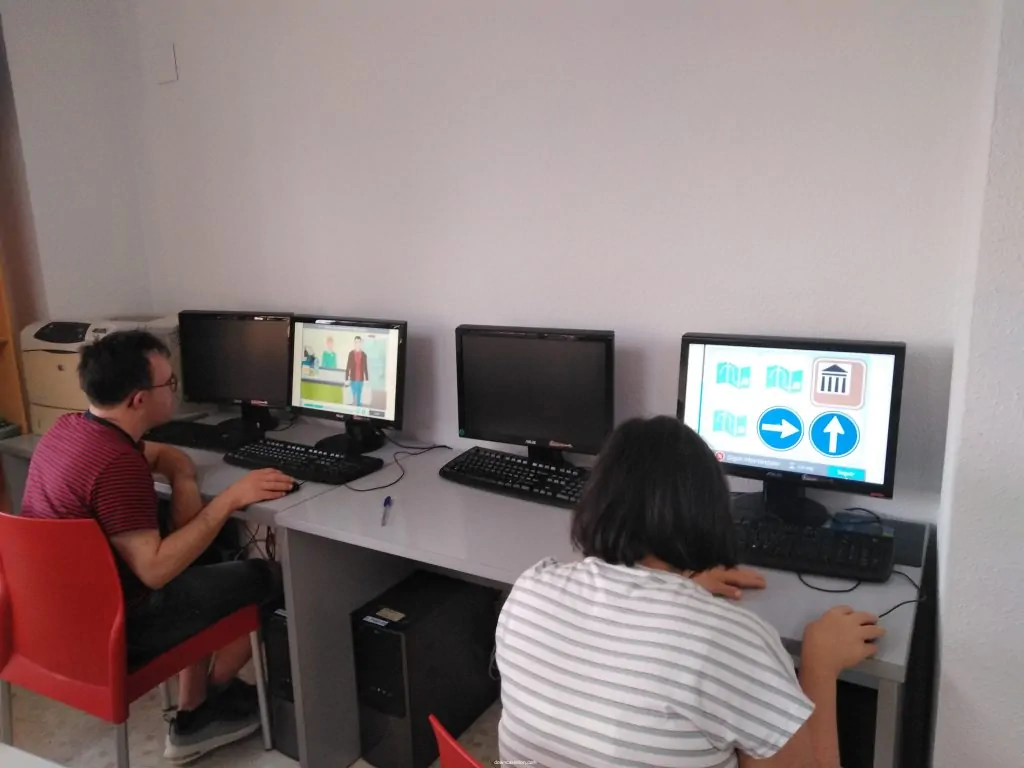
One of the pillars within the Aging Program is that people with Down syndrome remain active in all senses and, one of them, is the cognitive. Feeling active slows down the cognitive decline and allows us to be more autonomous and independent in our daily lives. Promoting these premises is what the professional team working at the Down Syndrome Association of Castellón advocates.
Several years ago we decided to incorporate NeuronUP as a support tool for the professional delivering sessions that stimulate cognitive abilities. These sessions are carried out in groups and are adapted to individual capacities. Using games, paper worksheets, everyday materials, the NeuronUP platform, among others, we aim to maintain and improve the cognitive functioning of the people who attend the sessions.
Benefits of NeuronUP
One of the advantages NeuronUP offered us is the personalization of sessions according to the specific needs of each person and the feedback on their performance. Likewise, the constant updating of activities and the training offered were other points in favor that made the use of this platform the ideal support tool for the professional responsible for planning the sessions.
Conclusions
At the Down Syndrome Association of Castellón we work so that our motto “I age with quality of life: and you?” is the reality of all the people who attend our organization.
If you want to know a little more about our program and how we work, do not hesitate to visit www.downcastellon.com. We will be happy to receive proposals that have an impact on the well-being of people with Down syndrome and/or intellectual disability and their environment.
If you liked this blog post about the aging of people with Down syndrome, you may also be interested in
“This article has been translated. Link to the original article in Spanish:”
Envejecimiento de las personas con síndrome de Down
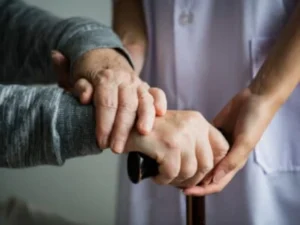
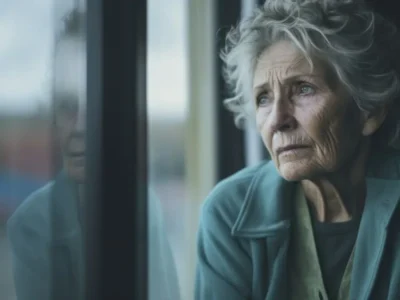


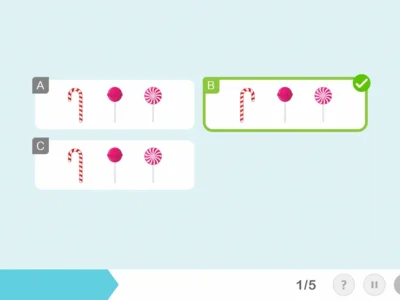
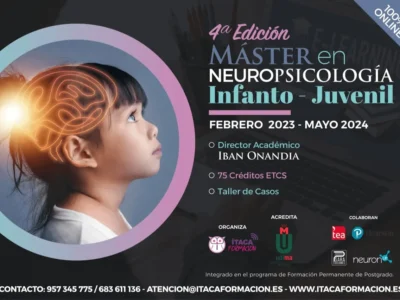
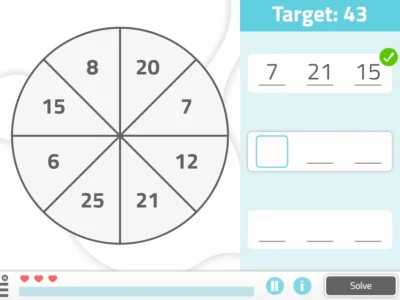
 Down Madrid shares its experience with telerehabilitation
Down Madrid shares its experience with telerehabilitation
Leave a Reply